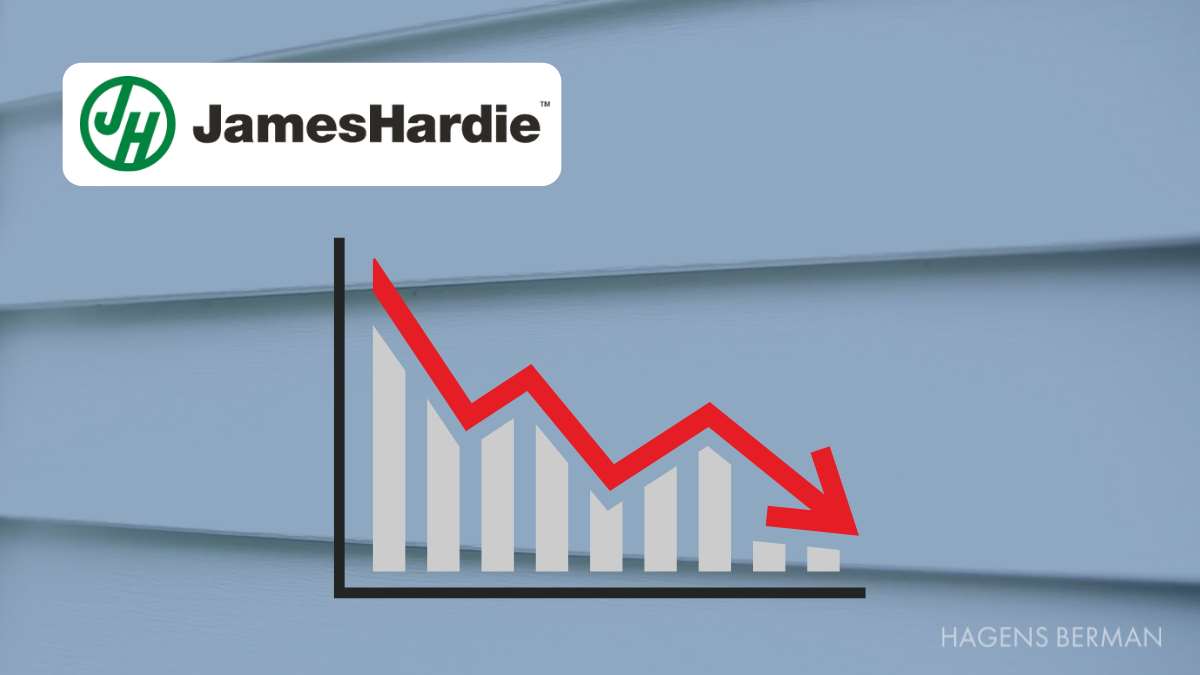Alleged Inventory Deception: Investors Claim James Hardie Concealed Weak Demand
 For a major building materials producer like James Hardie Industries plc (NYSE: JHX), the health of its business relies on consistent demand from its core customers—the distributors and builders who use its fiber cement products. For months, James Hardie executives allegedly assured investors that this demand remained strong.
For a major building materials producer like James Hardie Industries plc (NYSE: JHX), the health of its business relies on consistent demand from its core customers—the distributors and builders who use its fiber cement products. For months, James Hardie executives allegedly assured investors that this demand remained strong.
But a new federal securities class action lawsuit contends this was not the case, claiming that the Company concealed a critical sales problem that ultimately wiped out billions in shareholder value.
The Allegations: Sales Fueled by Inventory Loading
The lawsuit centers on James Hardie’s most crucial segment: the North America Fiber Cement business, which accounts for the vast majority of its earnings.
According to the complaint, throughout the Class Period of May 20, 2025, to August 18, 2025, the Company made numerous statements purportedly assuring investors that its North American segment remained strong. According to the complaint, executives stated that customer demand was robust and that distributor inventory levels were normal.
However, the complaint alleges that James Hardie knew by April and early May 2025 that its distributors were beginning to reduce (or “destock”) their inventory. The lawsuit contends that the reported high sales were not driven by sustainable customer demand but by inventory loading—a practice that artificially inflates revenue by forcing excess product onto distributors.
Investors remained unaware that James Hardie’s sales figures were allegedly masking a significant weakness in its underlying market.
The Stock Plunge: The Truth Comes Out
The alleged deception came to a head on August 19, 2025, when James Hardie belatedly disclosed a sharp decline in performance.
After the market closed, the Company released its disappointing quarterly results, revealing a 12% decline in North American Fiber Cement sales. Management attributed the decline to the very issue it had previously denied: customer destocking, which the Company now admitted had been discovered "in April through May." Management further cautioned that this destocking was expected to impact sales for at least the next two quarters.
The market reaction was immediate and severe.
Following the disclosure, James Hardie’s common stock fell by over 34%, dropping from $28.43 per share on August 19 to $18.64 per share on August 20, 2025. This single-day loss erased billions in market capitalization.
The Securities Fraud Claim
The federal securities class action lawsuit alleges that James Hardie and certain executives violated the Securities Exchange Act of 1934 by providing materially false and misleading statements and/or concealing these critical adverse facts. The gravamen of the complaint is that the Company’s positive statements about demand and inventory levels during the Class Period were misleading and that investors suffered massive losses when the truth about the underlying weakness was finally disclosed.
Investor Recourse and Deadlines
Global plaintiffs’ rights law firm Hagens Berman is actively investigating these alleged claims. The firm is urging investors in James Hardie who suffered substantial losses on their investments during the Class Period to contact them to discuss their legal options.
Hagens Berman has an extensive track record of litigating complex securities fraud cases, including successfully resolving those involving allegations of unsustainable sales practices. The firm’s focus is on maximizing recovery for defrauded investors.
The deadline for investors to file a motion with the court to serve as the lead plaintiff is December 23, 2025.





